About Us
Our Mission Statement
"People of faith responding to needs by serving, teaching, building community, and preserving the dignity of individuals and families of Southeast Texas."
Statement of Identity:
We are a Catholic, tax-exempt, multi-program service organization sponsored by the Diocese of
Beaumont, serving nine counties in Southeast Texas. Firmly rooted in Catholic Social Teaching and in an effort to live out the Church’s commitment to the Corporal Works of Mercy, we currently provide services through seven distinct programs, which include financial and homebuyer education, counseling services, daily meal service, immigration legal advocacy, food pantry, disaster response/hardship assistance, and grief support services. Services are available to all without regard to race, religion, age, gender, or national origin. We serve people not because they are Catholic but because we are Catholic.
Our Goals
Provide everyone the opportunity to make their lives better.
Provide integrated services that help children become good citizens, leaders and responsible adults.
Develop stewards who use their time, talent, and treasure to help people in need.
Catholic Social Teaching
Our Catholic Why:
Catholic social teaching is a central and essential element of our faith. Its roots are in the Hebrew prophets who announced God's special love for the poor and called God's people to a covenant of love and justice. It is a teaching founded on the life and words of Jesus Christ, who came "to bring glad tidings to the poor . . . liberty to captives . . . recovery of sight to the blind"(Lk 4:18-19), and who identified himself with "the least of these," the hungry and the stranger (cf. Mt 25:45). Catholic social teaching is built on a commitment to the poor. This commitment arises from our experiences of Christ in the eucharist.
As the Catechism of the Catholic Church explains, "To receive in truth the Body and Blood of Christ given up for us, we must recognize Christ in the poorest, his brethren" (no. 1397).
"Catholic social teaching is a central and essential element of our faith."
Catholic social teaching emerges from the truth of what God has revealed to us about himself. We believe in the triune God whose very nature is communal and social. God the Father sends his only Son Jesus Christ and shares the Holy Spirit as his gift of love. God reveals himself to us as one who is not alone, but rather as one who is relational, one who is Trinity. Therefore, we who are made in God's image share this communal, social nature. We are called to reach out and to build relationships of love and justice.
Catholic social teaching is based on and inseparable from our understanding of human life and human dignity. Every human being is created in the image of God and redeemed by Jesus Christ and therefore is invaluable and worthy of respect as a member of the human family. Every person, from the moment of conception to natural death, has inherent dignity and a right to life consistent with that dignity. Human dignity comes from God, not from any human quality or accomplishment.
Our commitment to the Catholic social mission must be rooted in and strengthened by our spiritual lives. In our relationship with God, we experience the conversion of heart that is necessary to truly love one another as God has loved us.
The Seven Themes of Catholic Social Teaching
Life and Dignity of the Human Person
The Catholic Church proclaims that human life is sacred and that the dignity of the human person is the foundation of a moral vision for society. This belief is the foundation of all the principles of our social teaching. In our society, human life is under direct attack from abortion and euthanasia. The value of human life is being threatened by cloning, embryonic stem cell research, and the use of the death penalty. The intentional targeting of civilians in war or terrorist attacks is always wrong. Catholic teaching also calls on us to work to avoid war. Nations must protect the right to life by finding increasingly effective ways to prevent conflicts and resolve them by peaceful means. We believe that every person is precious, that people are more important than things, and that the measure of every institution is whether it threatens or enhances the life and dignity of the human person.
Call to Family, Community, and Participation
The person is not only sacred but also social. How we organize our society -- in economics and politics, in law and policy -- directly affects human dignity and the capacity of individuals to grow in community. Marriage and the family are the central social institutions that must be supported and strengthened, not undermined. We believe people have a right and a duty to participate in society, seeking together the common good and well-being of all, especially the poor and vulnerable.
Rights and Responsibilities
The Catholic tradition teaches that human dignity can be protected and a healthy community can be achieved only if human rights are protected and responsibilities are met. Therefore, every person has a fundamental right to life and a right to those things required for human decency. Corresponding to these rights are duties and responsibilities--to one another, to our families, and to the larger society.
Option for the Poor and Vulnerable
A basic moral test is how our most vulnerable members are faring. In a society marred by deepening divisions between rich and poor, our tradition recalls the story of the Last Judgment (Mt 25:31-46) and instructs us to put the needs of the poor and vulnerable first.
The Dignity of Work and the Rights of Workers
The economy must serve people, not the other way around. Work is more than a way to make a living; it is a form of continuing participation in God's creation. If the dignity of work is to be protected, then the basic rights of workers must be respected--the right to productive work, to decent and fair wages, to the organization and joining of unions, to private property, and to economic initiative.
Solidarity
We are one human family whatever our national, racial, ethnic, economic, and ideological differences. We are our brothers and sisters keepers, wherever they may be. Loving our neighbor has global dimensions in a shrinking world. At the core of the virtue of solidarity is the pursuit of justice and peace. Pope Paul VI taught that if you want peace, work for justice.1 The Gospel calls us to be peacemakers. Our love for all our sisters and brothers demands that we promote peace in a world surrounded by violence and conflict.
Care for God's Creation
We show our respect for the Creator by our stewardship of creation. Care for the earth is not just an Earth Day slogan, it is a requirement of our faith. We are called to protect people and the planet, living our faith in relationship with all of God's creation. This environmental challenge has fundamental moral and ethical dimensions that cannot be ignored.
The Corporal Works of Mercy
The Corporal Works of Mercy are found in the teachings of Jesus and give us a model for how we should treat all others, as if they were Christ in disguise. They "are charitable actions by which we help our neighbors in their bodily needs" (USCCA). They respond to the basic needs of humanity as we journey together through this life.
The seven Corporal Works of Mercy are listed below. After each work of mercy there are also suggestions and words of advice for living them out in our daily lives. Have your own suggestions? Let us know @USCCB and use the hashtag #mercyinmotion.
Feed the hungry
There are many people in this world who go without food. When so much of our food goes to waste, consider how good stewardship practices of your own food habits can benefit others who do not have those same resources.
- Having delicious food at Thanksgiving or Christmas dinner? Donate to a Thanksgiving or Christmas food drive so everyone can have something to eat.
- Research, identify and contribute financially to organizations that serve the hungry.
- The next time you make a recipe that can be easily frozen, make a double batch and donate one to your local food pantry or soup kitchen.
- Try not to purchase more food than you are able to eat. If you notice that you end up throwing groceries away each week, purchasing less groceries would eliminate waste and allow you to donate the savings to those in need.
Give Drink to the thirsty
Many of our brothers and sisters in Christ do not have access to clean water and suffer from the lack of this basic necessity. We should support the efforts of those working towards greater accessibility of this essential resource.
- We take it for granted that we have access to clean water. Donate to help build wells for water for those in need
- Organize a group of children involved on a sports team (e.g. soccer) or a summer camp. Invite them to collect bottled water to distribute at a shelter for families. If parents can be involved, ask them to accompany their children in delivering the water to the families.
- Do the same for youth and young adult groups.
- Make an effort not to waste water. Remembering to turn off the water faucet when you are brushing your teeth or washing dishes can help, especially in regions suffering from drought.
Shelter the homeless
There are many circumstances that could lead to someone becoming a person without a home. Christ encourages us to go out and meet those without homes, affirming their worth and helping them seek a resolution to the challenges they face.
- See if your parish or diocese is involved with a local homeless shelter and volunteer some time.
- Donate time or money to organizations that build homes for those who need shelter.
- Many homeless shelters need warm blankets for their beds. If you can knit or sew that would be an extra loving gift.
- There are millions of children and families who are on the move, fleeing from war, illness, hunger and impossible living conditions, and searching for peace and safety. Engage parish groups of children, youth, young adults, and families in doing some research on the causes and challenges that these families face to survive. Contact Catholic Social Services, or diocesan offices of peace and justice for help with your research. Seek ways to provide shelter for the homeless locally, regionally, nationally or internationally.
visit the sick
Those who are sick are often forgotten or avoided. In spite of their illness, these individuals still have much to offer to those who take the time to visit and comfort them.
- Give blood
- Spend time volunteering at a nursing home – Get creative and make use of your talents (e.g. sing, read, paint, call Bingo, etc.)!
- Take time on a Saturday to stop and visit with an elderly neighbor.
- Offer to assist caregivers of chronically sick family members on a one-time or periodic basis. Give caregivers time off from their caregiving responsibilities so they can rest, complete personal chores, or enjoy a relaxing break.
- Next time you make a meal that can be easily frozen, make a double batch and give it to a family in your parish who has a sick loved one.
visit the prisoners
People in prison are still people, made in the image and likeness of God. No matter what someone has done, they deserve the opportunity to hear the Word of God and find the Truth of the message of Christ.
- See if your parish, or a nearby parish, has a prison ministry and if so, get involved.
- Volunteer to help out or donate to charities that give Christmas presents to children whose parents are in prison.
bury the dead
Funerals give us the opportunity to grieve and show others support during difficult times. Through our prayers and actions during these times we show our respect for life, which is always a gift from God, and comfort to those who mourn.
- Send a card to someone who has recently lost a loved one. Make your own card and use some of these prayers.
- Visit the cemetery and pray for those you have lost.
- Spend time planning your own funeral mass, read through the Order of Christian Funerals and find our hope in the Resurrection.
give alms to the poor
Donate money to organizations that have the ability to provide support and services for those in need. Do research and find organizations that put people in need first, rather than profit.
- Skip the morning latte and put that money in the collection basket at church.
- Find a charity that is meaningful to you and volunteer your time or donate.
- This Lent, give up eating out at restaurants. Pack you meals and donate the extra money to charities.
- Participate in CRS Rice Bowl
The Spiritual Works of Mercy
The Spiritual Works of Mercy have long been a part of the Christian tradition, appearing in the works of theologians and spiritual writers throughout history. Just as Jesus attended to the spiritual well-being of those he ministered to, these Spiritual Works of Mercy guide us to "help our neighbor in their spiritual needs" (USCCA).
The seven Spiritual Works of Mercy are listed below. After each work of mercy there are also suggestions and words of advice for living them out in our daily lives. Have your own suggestions? Let us know @USCCB using the hashtag #mercyinmotion!
Counseling the doubtful
Everyone has moments of doubt in their faith journey. Nevertheless, we should always remember that Christ is the Way, the Truth, and the Life and turn to him along our way.
- Listen to counsel and receive instruction, that you may eventually become wise" (Prov 19:20)
- The Cross of Christ "the foolishness of God is wiser than human wisdom, and the weakness of God is stronger than human strength" (1 Cor 1:25)
- Has someone asked you for advice? Orient your response to Christ, who is the Way, the Truth, and the Life
- Follow Christ with the witness of your life so that others may see God's love revealed in your actions
- Accompany a friend who is struggling with believing to join a parish group for service or faith formation, share a book you found useful in dealing with your friend's faith concern, and worship at Sunday Mass
instructing the ignorant
Learn about our faith and be open to talking with others about our beliefs. There is always something more to discover about our faith.
- Go on a service trip or short term mission trip. No time? Donate to support someone on their service trip
- Volunteer to help with religious education programs at your parish
- Invite someone to go to mass with you this weekend
- Know your faith! Read through the USCCA to find out more about the Catholic faith and how to live it
admonishing the sinner
Do not judge, but be supportive in helping others find their way and correct their mistakes. Together we can learn to walk more closely with Christ.
- In humility we must strive to create a culture that does not accept sin, while realizing that we all fall at times
- Don't judge, but guide others towards the path of salvation (see Mt 7:1-2)
- When you correct someone, don't be arrogant. We are all in need of God's loving correction.
- We should journey together to a deeper understanding of our shared faith
- "Remove the wooden beam from your eye first; then you will see clearly to remove the splinter from your brother's eye" (Mt 7:5)
comforting the sorrowful
Be open to listening and comforting those who are dealing with grief. Even if we aren't sure of the right words to say, our presence can make a big difference.
- Lend a listening ear to those going through a tough time
- Make a home cooked meal for a friend who is facing a difficult time
- Write a letter or send a card to someone who is suffering
- A few moments of your day may make a lifetime of difference to someone who is going through a difficult time
forgiving injuries
Forgiving others is difficult at times because we do not have God's limitless mercy and compassion. But Jesus teaches us that we should forgive as God forgives, relying on him to help us show others the mercy of God
- Let go of grudges
- Saying sorry is something we learn as kids, but how often do we really mean it? Forgiveness transforms hearts and lives
- Participate in the Sacrament of Penance
- Pray the Divine Mercy Chaplet
bearing wrongs patiently
Do not be bitter about wrongs done against you. Place your hope in God so that you can endure the troubles of this world and face them with a compassionate spirit.
- Frustrated with someone? Step away from the situation, take a few deep breaths, pray the Our Father, asking God for patience
praying for the living and the dead
Prayer is one of the most powerful ways we can support others. Joining together in prayer for the living and the dead entrusts us all into God's care.
- Request a mass intention for a friend or family member who is going through a tough time
- Request a mass intention for a friend or family member who has passed away
- Keep your own book of prayer intentions, writing down the names of those who you are keeping in your prayers
- Ask a friend or family member if there is anything you can pray for them about
- Through prayer, entrust your cares and concerns for those around you to God
HISTORY
Today
The agency continues to evolve and currently offers seven diverse programs that address critical needs in Southeast Texas. Those programs are Asset Building Case Management, Counseling Services, Disaster Response/Hardship Assistance, Elijah’s Place, Hospitality Center, Immigration Services, and Market to HOPE. The agency’s newest program, Market to HOPE (Help Other People Eat), is a grocery store model food pantry which has been in operation since February of 2020. Each of these programs serves a recognized community need in support of the poor, vulnerable, underserved, and disadvantaged.
2000’s
2000’s
In the wake of the devastating regional effects of Hurricanes Rita and Ike in 2005 and 2008, respectively, the agency expanded its programming to address regional disaster assistance and financial case management to help residents rebuild their lives. These programming initiatives live on still, having evolved into means of community assistance beyond their original visions.
In 2007, the organization underwent a name change, shifting the name of the corporation from “Catholic Charities of the Diocese of Beaumont, Inc.” to “Catholic Charities of Southeast Texas.” The current name better expresses that the Diocese of Beaumont and Catholic Charities’ service territory consists of nine counties (Chambers, Hardin, Jasper, Jefferson, Liberty, Newton, Orange, Polk and Tyler) commonly referred to as Southeast Texas.
1980’s-1990’s
In 1986, this program was renamed The Partnership for Human Development.
The Diocese of Beaumont began using the name Catholic Charities for social service programming in 1989. Two years were spent evaluating the social service safety net throughout the diocese with the goal of designing programs that met a recognized human need without duplicating the services provided by other organizations. From this research, programs of service developed. Catholic Charities merged with the Partnership for Human Development, the diocese’s first social service agency, placing all such services under one umbrella.
1970’s
In response to the Cadre Study, the National Conference of Catholic Charities adopts a new mission to pursue greater involvement in the world, to help transform society through advocacy and to convene the Catholic community and other concerned people in that effort. Out of this commitment, Catholic Charities of Southeast Texas was born. In 1975 the United States Catholic Conference assumed a dominant role in the resettlement of refugees in the wake of the Vietnam War. The Diocese of Beaumont accepted the responsibility of resettling refugees and set an initial target of 1,000 people. In October 1976, the Resettlement Office was formed to address this issue. The Resettlement Office’s services included providing reception, placement, case management services, childcare, job development, job placement, support services, and immigration services to refugees.
1960’s
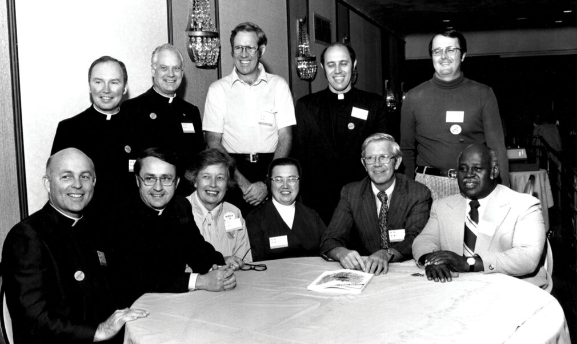
The Cadre Study launches in 1969 to help determine the future direction of Catholic Charities. Participants consider the Vatican II mandate to engage more deeply in charitable work for all people in need, taking into account changing social conditions in the U.S., including pluralism, increased immigration and the feminization of poverty.
1950’s
The first meeting of the International Conference of Catholic Charities (later Caritas Internationalis) is held in Rome.
1940’s
Following World War II, Catholic Charities campaigns for a program to admit displaced persons to the U.S., actions echoed in the 21st century as Catholic Charities continues to welcome vulnerable newcomers.
1930’s
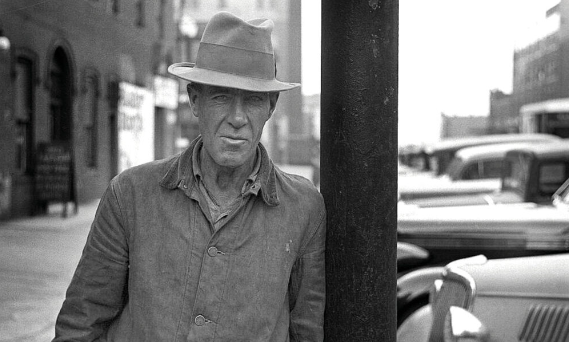
The enormity of human suffering brought on by the Great Depression taxes Catholic Charities agencies and other private charities to the limit. Justified by the principle of subsidiarity, as Pope Pius XI discussed in the 1931 encyclical Quadragesimo Anno, Catholic Charities leaders on the local, state and national levels fight for public funds, calling on government to fulfill its duty to provide relief.
1920’s
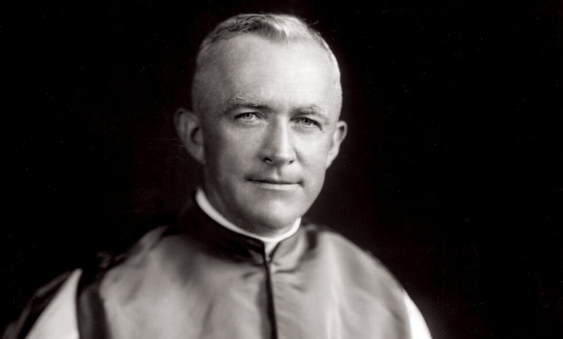
Msgr. John O’Grady is named executive secretary in 1920 and fosters a period of growth during his 40-year tenure. He focuses on establishing diocesan Catholic Charities agencies and advocating for workers, families and those who are poor.
1910
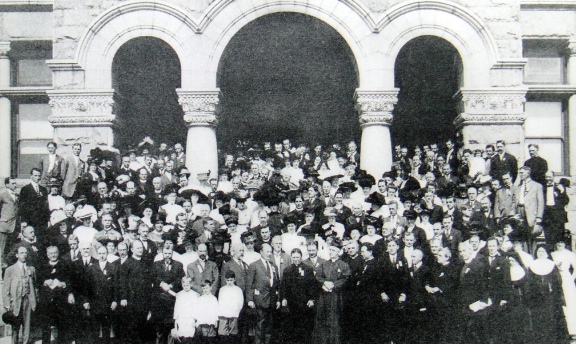
The National Conference of Catholic Charities is founded in 1910 as “the attorney for the poor.” Among the 400 people present at its first meeting are three instrumental early leaders: Msgr. William J. Kerby, Msgr. John O’Grady and Bishop Thomas J. Shahan.
Board of Directors
Meagan Duplissey
Chair
Patrick Berken
Vice Chair
Don Duplan, M.D.
Treasurer
Kelly Cupero
Secretary
Cindy Powers
Past Chair
Karen Fuljenz
Rev. Dr. Jim Fuller
Michelle L. Johnson
Deacon Clay Kuykendall
Patrick Maloney
Deborah Marciniak
Margaret Brown Middleton
Melissa McCorvey
Cynthia Powers
W.R. (Bill) Sam, Sr.
Gay Scott
J. Mitchell Smith
Wayne F. Sparrow
Sean Stevenson
Annie Tingan
Melaney Villery-Samuel
Sabrina Vrooman
(Ex-Officio)
Carolyn R. Fernandez
President/CEO
Most Reverend David L. Toups, Member
Bishop of the Diocese of Beaumont

